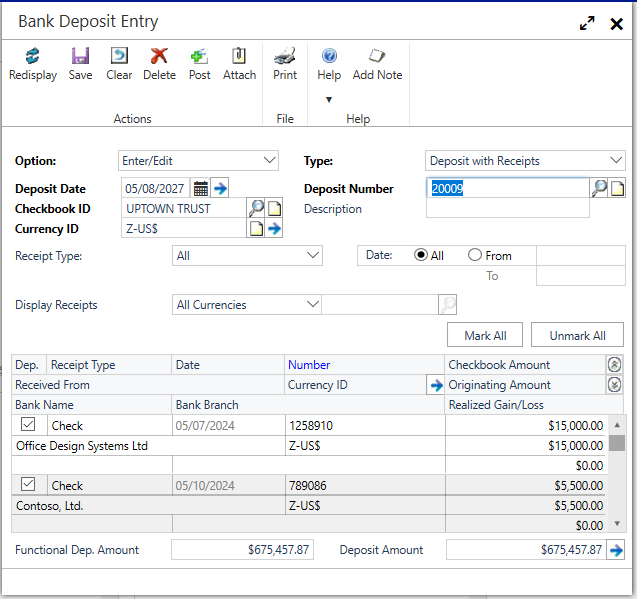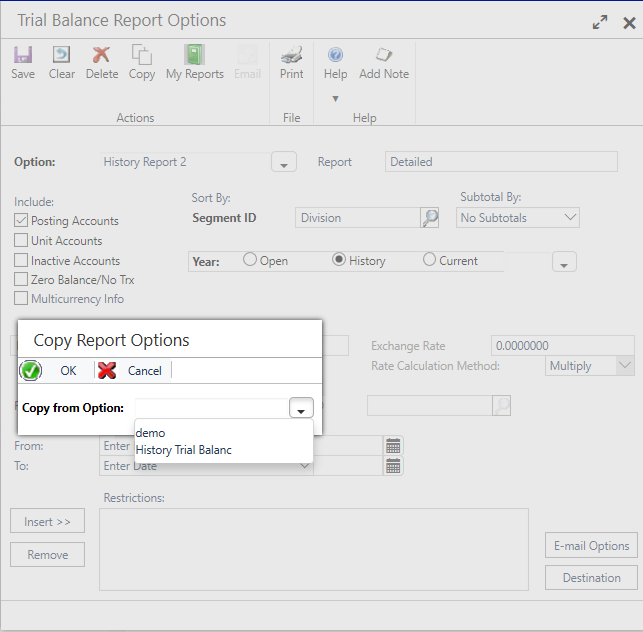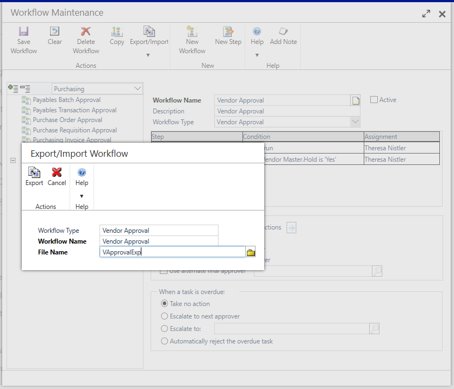 The Inside Microsoft Dynamics GP blog has started a series Feature of the Day posts for Microsoft Dynamics GP “October 2019” Release on which I am following and adding commentary. The index for this series of posts is here.
The Inside Microsoft Dynamics GP blog has started a series Feature of the Day posts for Microsoft Dynamics GP “October 2019” Release on which I am following and adding commentary. The index for this series of posts is here.
The seventh Feature of the Day is add Document Attachments to Bank Reconciliation. Document Attachment functionality has been added to Bank Reconciliation. Specifically, you can attach, view, edit documents in Bank Deposit Entry, Bank Transaction Entry, Bank Deposit Inquiry Zoom and Bank Transaction Inquiry Zoom.
You can also attach images, text files or assign attributes to the attachments to further describe them.








